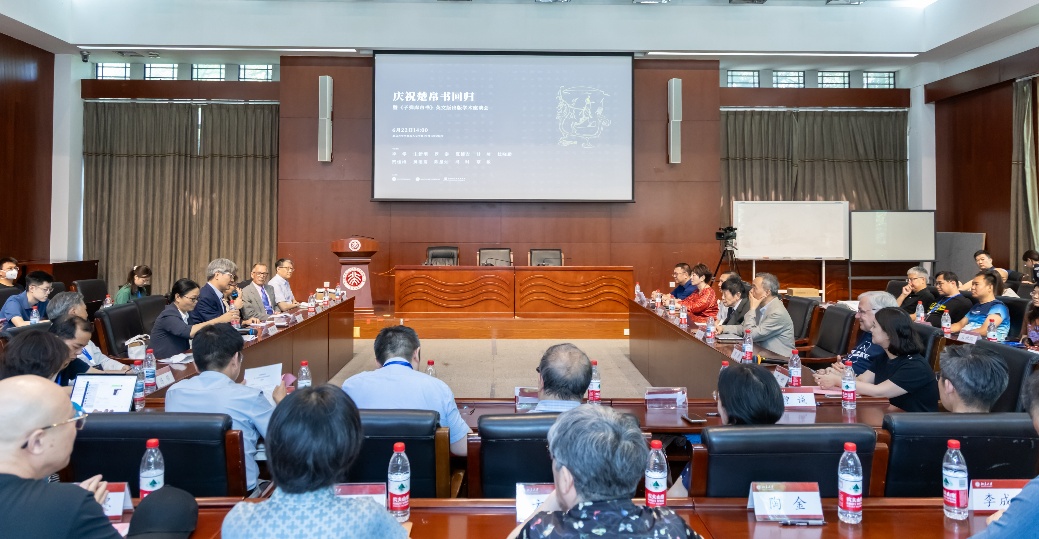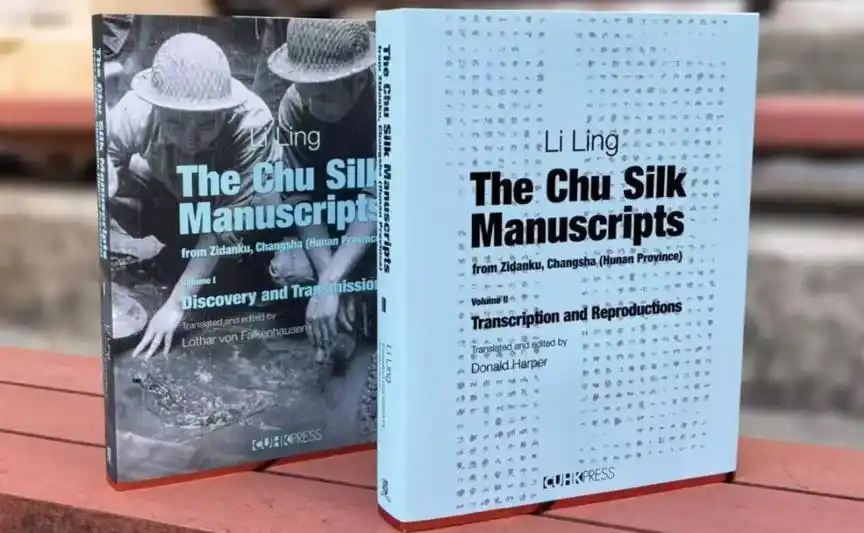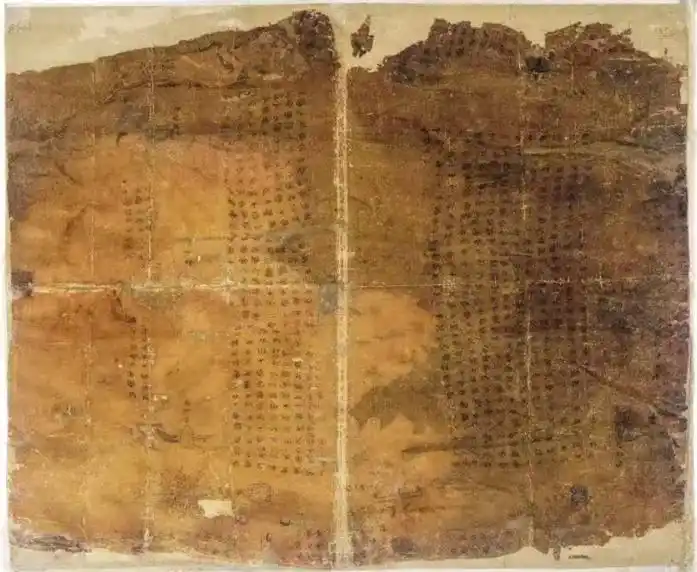Peking University, June 27, 2025: Peking University hosted an academic conference on June 22 celebrating the return of the historical Chu Bo Shu and the publication of the English translation,
The Chu Silk Manuscripts, underlining the burgeoning global reach of Chinese traditional culture.

The Chu Bo Shu, also known as the Chu Silk Manuscripts, was unearthed by robbers in 1942 from a Warring States tomb in Zidanku, southeast of the former city walls of Changsha. After being smuggled into the United States in 1946, it was then purchased by Arthur Sackler and had been preserved at the Arthur M. Sackler Gallery in Washington, D.C., which is now part of the US National Museum of Asian Art.
On May 16, the National Cultural Heritage Administration received the fragments of "Wuxing Ling" (Almanac on Do and Don't) and "Gongshou Zhan" (Attack and Defense Divination) at the Chinese embassy, which were then flown back to China in the following days, ending its 79 years of being lost overseas.
As the oldest surviving text on cloth, the Chu Silk Manuscripts (the Manuscripts) are of great cultural significance. It’s content spans cosmogony (theory of origin of the world), astronomy, astrology, early Chinese almanac and attack and defense traditions. Its return will significantly enrich knowledge of ancient Chinese characters and philosophies.
Fragments of the Chu Bo Shu. Photo Source: BJNEWS.COM.CN
Li Ling, a veteran archaeologist at PKU’s Department of Chinese Language and Literature, has been studying the Manuscripts since the 1970s, his research culminating in a two-volume monograph published in 2017. The books contain a detailed account of discovery and provenance of the Manuscripts, as well as a complete transcription accompanied by comprehensive annotations and paleographic analyses. An English version translated by Lothar von Falkenhausen (UCLA) and Donald Harper (UChicago) has been published early this year, enlarging the global impact of traditional Chinese culture.
The National Cultural Heritage Administration has recently sent a letter thanking Li Ling for the support he has provided in retrieving the Manuscripts, and congratulating his academic achievement.
In his opening remarks at the conference, Wang Bo, Vice President of PKU, emphasized the significance of Li Ling’s contribution in researching the Manuscripts and aiding it’s return to China, saying that the cooperation between him and Mr. Falkenhausen and Mr. Harper underpinned an international community of shared knowledge. He then noted that PKU attaches great significance to paleography and philology, and stays committed to promoting international exchanges in these niche research areas.

The English version of The Chu Silk Manuscripts. Photo source: BJNEWS.COM.CN
Both Mr. Falkenhausen and Mr. Harper expressed their enthusiasm for the translation process and for more classical Chinese literature translation in the future, noting that translation is recreation of knowledge and thinking.
Expressing his heartfelt gratitude to Mr. Falkenhausen and Mr. Harper, Li Ling described a state of triumphant rapture by referencing a quote from his book: “For the journey home is as long as the sky and earth are vast, going back home can only happen in a dream. Now Chu Bo Shu is home, Ulla(a Russian word for expressing emotional excitement)!”
He also gave Chinese and English versions of
The Chu Silk Manuscripts to faculties of Department of Chinese Language and Literature as gifts.
Written by: Chen Shizhuo
Edited by: Zhang Jiang
Source: PKU News (
Chinese)


